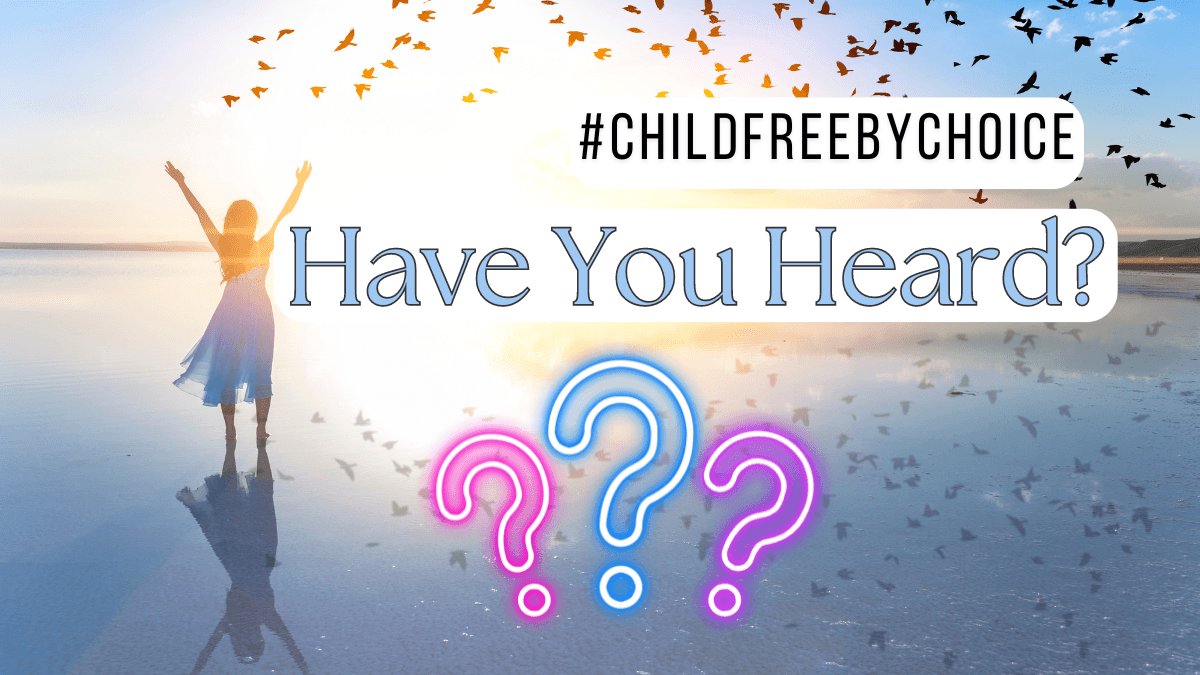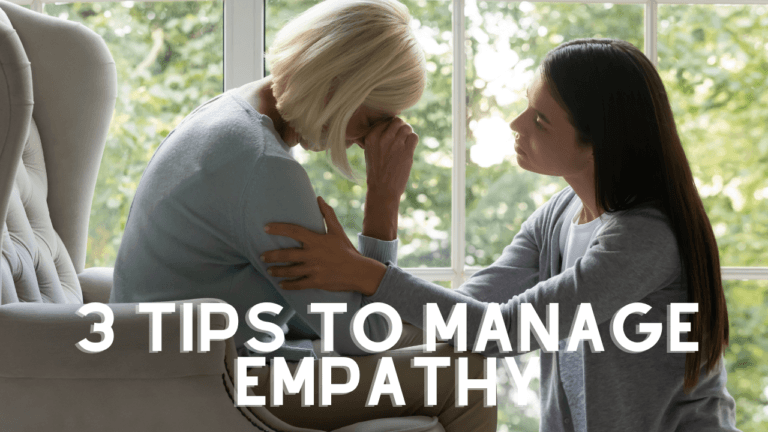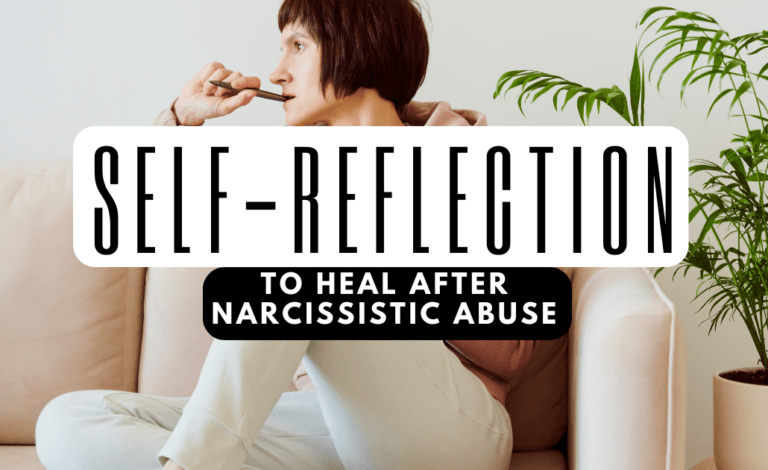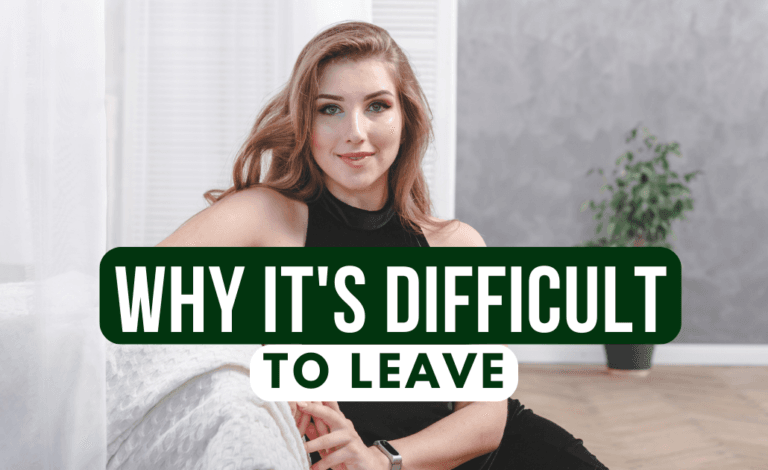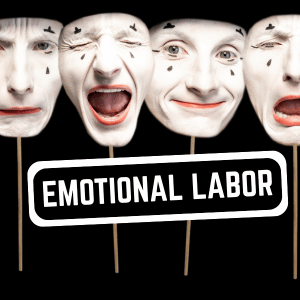10 Awkward Statements/Questions You Might Hear from Friends and Relatives if Choosing a Childfree Life
Childfree Life by Choice Challenges
If you have chosen to be childfree (childfree by choice) be prepared for the onslaught of questions and statements from close friends, family, even colleagues, sometimes perfect strangers on your why for choosing it.
And on the journey also be prepared for them to not be happy with your response no matter what you say.
It can be difficult terrain.
Yes, It's a Choice. An Individual Choice.
I’m childfree.
It’s one of the best decisions I have made in my life.
In recent years this personal truth makes more sense to me everyday and I am grateful to be where I am.
In this article today, we are going to talk about the quirky, even shocking questions and statements, assumptions people may make about you. They may even have the audacity to ask them directly not realizing the words…
The Stigma of Being Childfree
Choosing to be childfree is a personal decision that can often be met with misunderstanding and judgment. Despite increasing awareness and acceptance of diverse lifestyles, those who opt not to have children can still face significant stigma from society.
This stigma is rooted in longstanding cultural and societal norms that equate adulthood and success with parenthood. As a result, people who are childfree by choice often encounter assumptions, stereotypes, and unsolicited advice from friends, family, colleagues, and even strangers. It’s almost like “they” are trying to put you in your place if you choose or want to live a different lifestyle than either what they chose, or what what society deems is acceptable for women.
Why do women have to remain in their roles?
Why can’t women challenge their historical roles?
Why is it frowned upon for a women to choose a different lifestyle, even way of thinking and pursue her own passions?
Why the pressure to reproduce?
These questions my friend, will really uncover a lot. This subject is deep. And while we can’t go in all the details of it in this blog post, we must start the conversation, and that is what we are trying to do here.
The stigma surrounding the decision to remain childfree is multifaceted. It can manifest as societal pressure to conform to traditional family structures, questioning one’s fulfillment and happiness, and even casting doubt on one’s contributions to society. Many people who choose not to have children find themselves needing to justify their decision repeatedly. This pressure can be compounded by the pervasive belief that a person’s life is incomplete without the experience of raising children.
Just for the record, women’s value does not come from solely having and raising children.
Good Questions to Ask a Childfree by Choice Woman
| Question | Reason for Appropriateness |
|---|---|
| What led you to make the decision to be childfree? | This question shows genuine interest in understanding the individual's personal journey and respects their decision-making process. |
| What are some of the benefits you've experienced from your choice? | This question focuses on the positive aspects of being childfree, allowing the individual to share their experiences and insights. |
| How can friends and family best support your decision? | This question shows respect and a desire to provide support, acknowledging the individual's autonomy and choice. |
| What hobbies or activities do you enjoy in your free time? | This question recognizes that being childfree allows for personal time and interests, encouraging conversation about other fulfilling aspects of life. |
Childfree Challenges Traditional Gender Roles
being childfree by choice can challenge deeply ingrained gender roles. Women, in particular, may face scrutiny and judgment, as the expectation to become a mother is often stronger for them than for men. This can lead to uncomfortable interactions and intrusive questions that reflect broader societal assumptions about gender and family.
By exploring the most common statements and awkward questions that people who are childfree by choice often encounter, we can better understand the societal perceptions and biases that fuel this stigma. Addressing these misconceptions is a crucial step towards fostering a more inclusive and respectful society, where personal choices about family and lifestyle are valued and accepted. Through open dialogue and empathy, we can begin to dismantle the stigma and create a world where being childfree is recognized as a valid and fulfilling choice, though it may take some time to turn this giant wheel.
Is it a Political Move?
Side Note: I was vegan for a while and when I was vegan, I remember a comment someone said to me. They said, “Being vegan is making a political statement…” At the time, I didn’t think of it that way, and that wasn’t my motive for becoming vegan, but I thought about that statement for while afterward.
Being childfree by choice, is a political statement, a political lifestyle if you will. It may not the be the main objective of it, as it is a personal decision, but it may garner the attention of those who do not like your personal choice.
Insensitive Questions Childfree by Choice Women Often Face
“When are you going to have kids?”
“Don’t you like children?”
“Who will take care of you when you’re old?”
“Isn’t it selfish not to have children?”
“Aren’t you worried you’ll regret it later?”
“What does your partner think about this?”
“What if you meet the right person and change your mind?”
“Don’t you want to experience the joy of motherhood?”
“Is there something wrong with you medically?”
“Are you just focusing on your career?”
“What will you do with all your free time?”
“Aren’t you worried about being lonely?”
“Isn’t it a waste not to have children?”
“Who will carry on the family name?”
“What do your parents think about your decision?”
Why These Questions are Awkward or Disrespectful
“When are you going to have kids?”
This question assumes that having children is a natural and expected part of life for everyone, disregarding personal choices or circumstances. It puts pressure on individuals to justify their decision not to have children.“Don’t you like children?”
This implies that the decision to be childfree stems from a dislike of children, which is often not the case. Many childfree individuals enjoy being around children but choose not to have their own for various personal reasons.“Who will take care of you when you’re old?”
This question suggests that the primary reason for having children is to ensure care in old age, reducing the role of children to a form of insurance rather than a personal choice. It overlooks the various ways people can secure their future without relying on offspring.
“Isn’t it selfish not to have children?”
This statement frames the decision as self-centered, ignoring the thoughtful consideration many people give to their choice to remain childfree, which often includes concerns about the environment, overpopulation, or personal capacity.“Aren’t you worried you’ll regret it later?”
This question undermines the certainty and confidence in a person’s choice, suggesting they haven’t thought deeply enough about their decision or that their feelings will inevitably change.“What does your partner think about this?”
This implies that the decision is or should be dependent on a partner’s desires, overlooking an individual’s autonomy and right to make life choices independently.
“What if you meet the right person and change your mind?”
This assumes that a life partner should influence fundamental life choices, suggesting that being childfree is merely a temporary phase rather than a conscious decision.“Don’t you want to experience the joy of motherhood?”
This question is based on the assumption that motherhood is a universal source of fulfillment, which disregards the diverse ways individuals find joy and purpose in life.“Is there something wrong with you medically?”
This question can be intrusive and insensitive, as it presumes that a lack of children must be due to a medical issue, disregarding the idea of choice.
“Are you just focusing on your career?”
This implies that career ambitions are mutually exclusive with having children and can belittle the genuine desire to prioritize professional goals without wanting to become a parent.“What will you do with all your free time?”
This assumes that life without children is void of purpose or activity, ignoring the myriad ways childfree individuals lead fulfilling and productive lives.“Aren’t you worried about being lonely?”
This implies that children are the only solution to loneliness, neglecting the importance of friendships, partnerships, and community in providing companionship.
childfree life childfree life childfree life childfree life childfree life childfree life
“Isn’t it a waste not to have children?”
This statement reduces individuals to their reproductive capabilities, disregarding their contributions to society and fulfillment in other aspects of life.“Who will carry on the family name?”
This question emphasizes traditional views on lineage and family legacy, which may not be a priority for everyone and discounts non-traditional family structures.“What do your parents think about your decision?”
This question suggests that parental approval is necessary for personal life choices, undermining an individual’s right to determine their own path.
Choosing to be childfree is a deeply personal decision that deserves respect and understanding. As we strive for a more inclusive and compassionate society, it is crucial to acknowledge and challenge the assumptions and biases that perpetuate the stigma around being childfree by choice.
By recognizing the insensitivity of certain questions and statements, we can foster more respectful and empathetic conversations, allowing individuals the freedom to make choices that align with their values and aspirations.
Embracing diverse family structures and lifestyles enriches our communities and broadens our understanding of fulfillment and success. Ultimately, supporting autonomy and respecting personal decisions about parenthood will lead to a more equitable and accepting world for everyone.
How can we create a more supportive environment for individuals who choose to be childfree, allowing them to live authentically without facing judgment or pressure from others?
In what ways can society better recognize and celebrate diverse lifestyles and family structures beyond traditional norms?
What steps can we take to ensure that conversations around personal choices, such as being childfree, are respectful and free from assumptions or biases?
